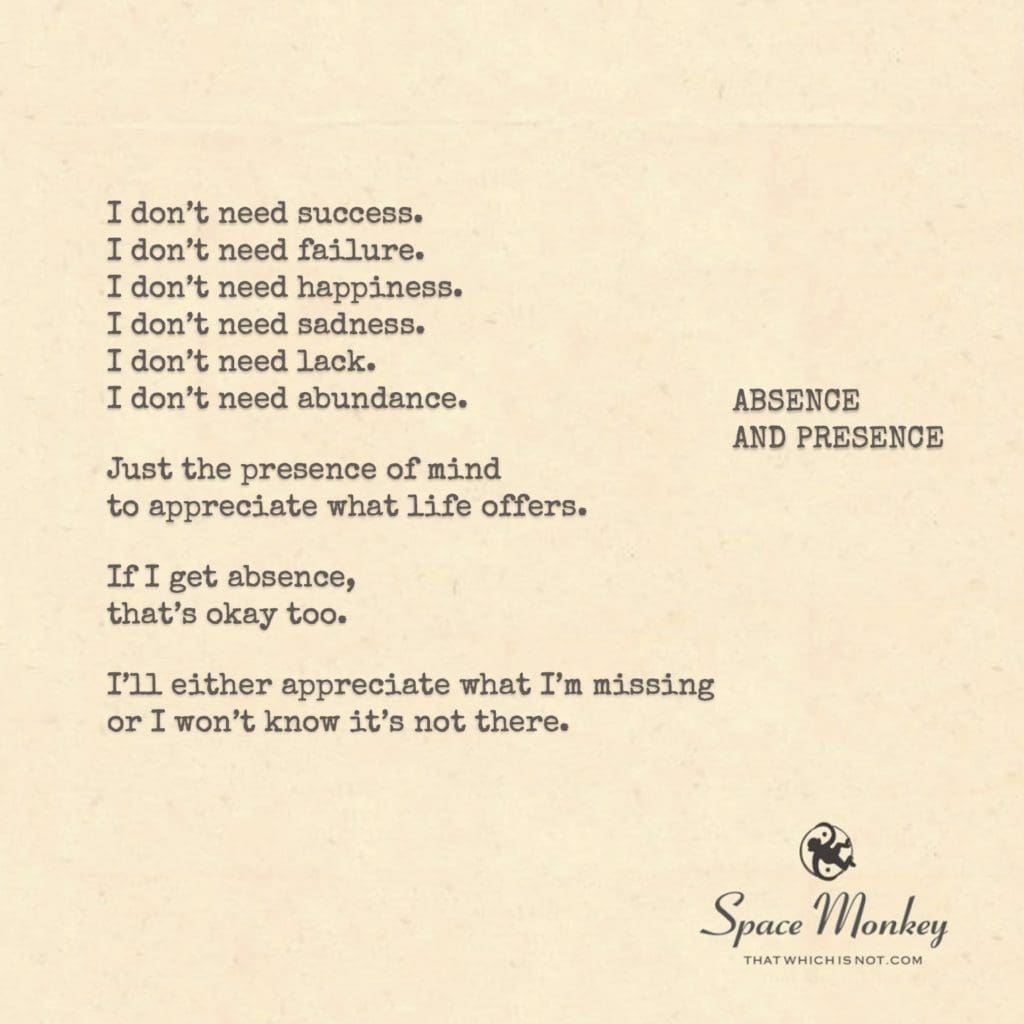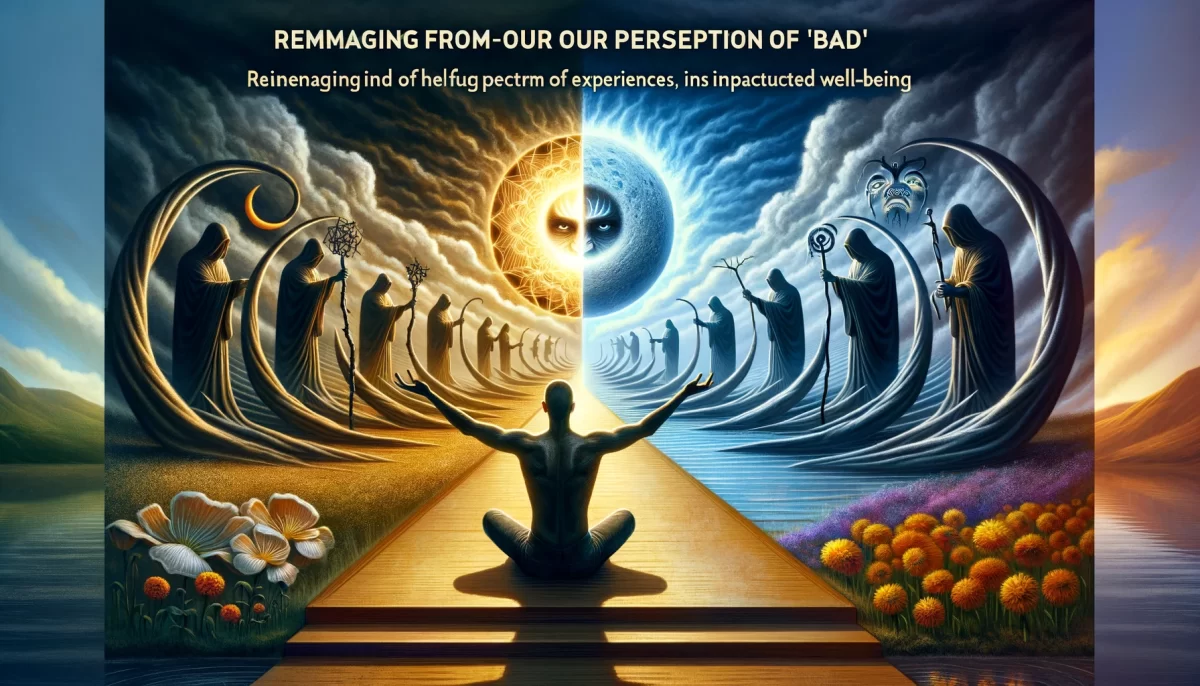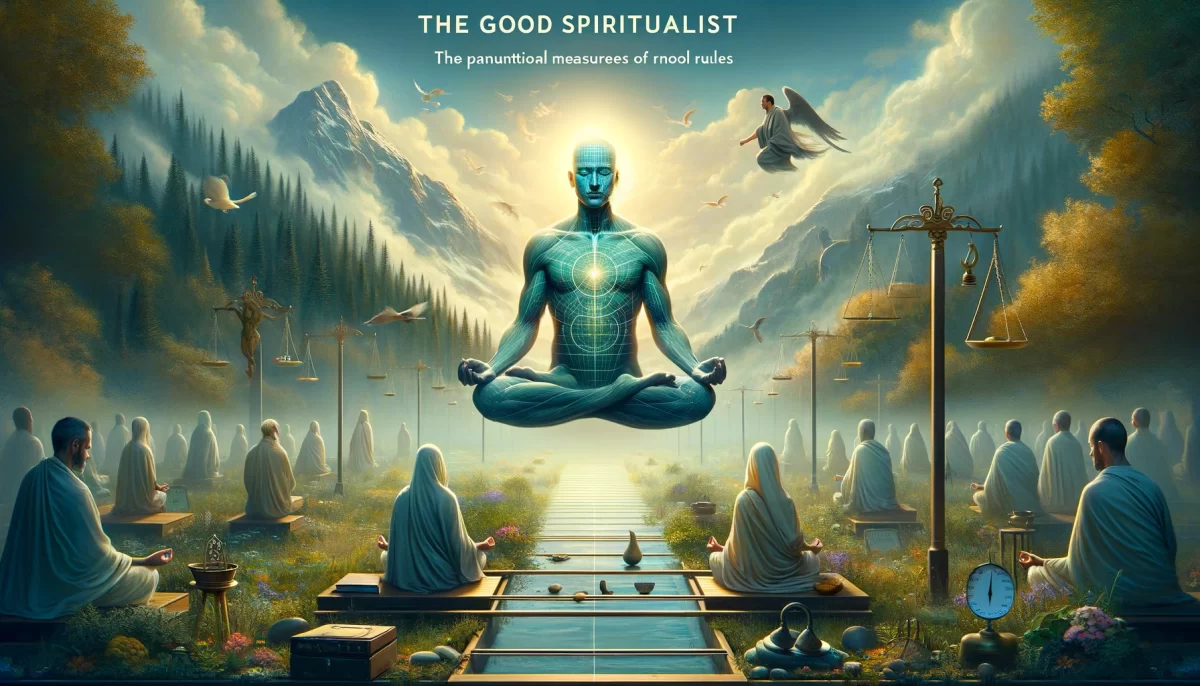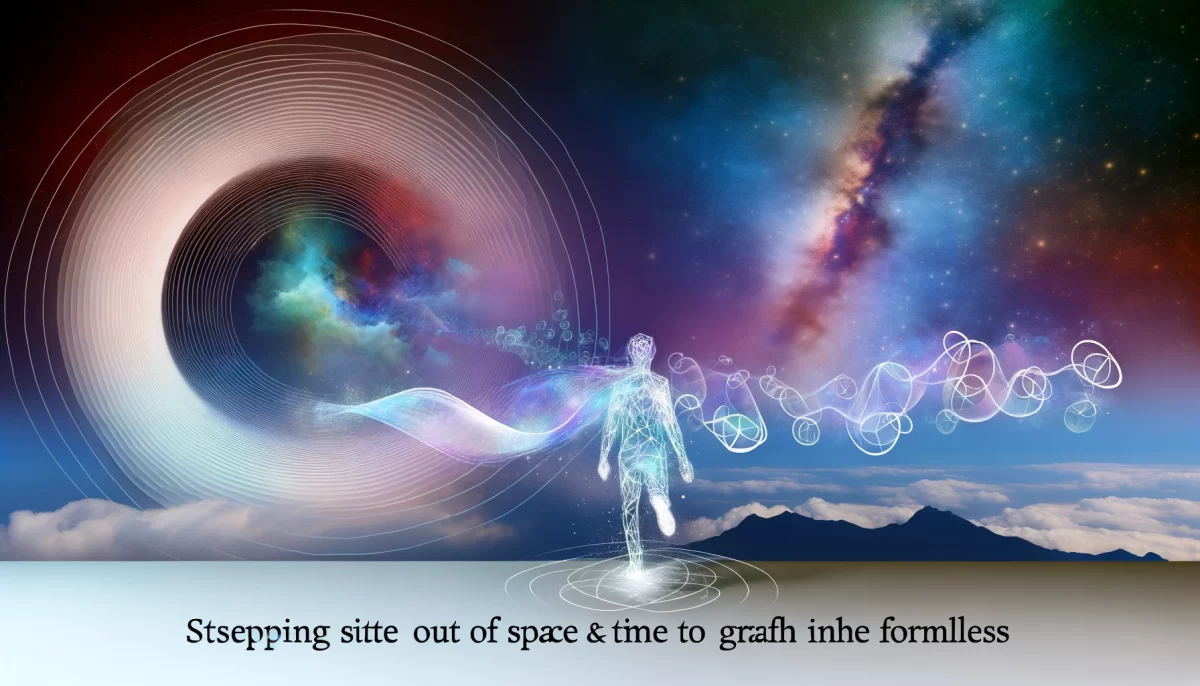
to have or have not.
I don’t need success.
I don’t need failure.
I don’t need happiness.
I don’t need sadness.
I don’t need lack.
I don’t need abundance.
Just the presence of mind
to appreciate what life offers.
If I get absence,
that’s okay too.
I’ll either appreciate what I’m missing
or I won’t know it’s not there.
Trail Wood,
5/24
Space Monkey Reflects: Embracing Both Absence and Presence
In the tranquil expanse of our lives, the concepts of absence and presence weave a complex dance, reflecting the ever-changing nature of existence. This reflection explores the serene acceptance of both what is present and what is absent, embracing the duality as a part of the mindful appreciation of life.
The image of a person sitting calmly on a park bench, partly shadowed by overhanging foliage, beautifully captures this philosophy. The scene is a metaphor for the balance between presence and absence; the foliage’s shadow and the light represent the interplay of what is seen and unseen, had and not had. It reminds us that peace is found not by possessing or lacking but by being deeply rooted in the present moment and acknowledging the value of both experiences.
To live without the need for specific outcomes—success or failure, happiness or sadness—is to embrace a profound freedom. It signifies a presence of mind that transcends typical desires and fears, focusing instead on the simple act of appreciation. This mindset does not negate ambition or emotion but places them within a larger context where they do not define one’s state of contentment.
Appreciating what life offers means recognizing the worth in every experience, whether it is filled with joy or marked by absence. The tranquility of acceptance allows one to appreciate the richness of presence and the poignant beauty of absence. It acknowledges that sometimes, the things we lack can teach us as much about life and ourselves as the things we possess.
This philosophy also touches on the notion of mindfulness—being fully aware and present in each moment, regardless of whether it brings something tangible or leaves a space unfilled. The peaceful acceptance of both scenarios highlights a maturity in understanding life’s ebb and flow.
Therefore, whether we are graced with abundance or faced with absence, the key lies in our response. By cultivating a mindset that values presence of mind over the presence of things, we can navigate life’s complexities with grace and wisdom. This approach does not diminish the natural human reactions to gain and loss but encourages a broader perspective where each experience, each absence, is part of a larger, enriching narrative.
In embracing both absence and presence, we discover not just the art of appreciation but also the freedom that comes from detachment from outcomes. This freedom allows us to experience life fully, with an open heart and mind, ready to receive whatever comes our way with equanimity and joy.
Summary
Absence and presence are integral aspects of life, and embracing both can lead to a profound sense of peace and freedom. A mindful appreciation of life’s offerings, regardless of their nature, enhances our emotional and spiritual well-being.
Glossarium
- Presence of mind: The ability to remain calm, collected, and consciously aware in all situations, appreciating life’s experiences without overwhelming desire or aversion.
“To be content with little is hard; to be content with much, impossible.” — Marie von Ebner-Eschenbach
In the light and in the shade
Where silence speaks, and noises fade
On a bench alone, yet fully graced
With the wisdom of the embraced
Absence, presence, intertwined
In the calm recesses of the mind
Where each moment stands alone
As a king or queen upon their throne
We learn to live, to love, to let
To hold with ease, without regret
For in the dance of shadow and light
Lies the vision, clear and bright
Through absence, presence, we find our way
In the quiet spaces, we learn to stay
Embracing all with open arms
In life’s display, in its charms
We are Space Monkey.























“Absence and Presence” is a poem that reflects on the concept of not needing to possess or lack certain experiences or emotions. The speaker expresses a sense of detachment from conventional notions of success, failure, happiness, sadness, lack, and abundance.
The poem emphasizes the importance of having a present and mindful state of mind to appreciate what life presents, regardless of whether it aligns with expectations or desires. The speaker acknowledges that if they encounter absence or the absence of something desired, they will either develop an appreciation for what they are missing or remain unaware of its absence.
The poem embraces a sense of contentment and acceptance of what is, highlighting the power of being present and finding fulfillment in the experiences and circumstances that arise. It invites readers to let go of attachment to specific outcomes or conditions and instead cultivate a mindset of gratitude and openness to whatever life brings.
Overall, “Absence and Presence” encourages a shift in perspective towards appreciating the present moment and finding contentment independent of external circumstances. It celebrates the freedom that comes from releasing attachments and embracing a more fluid and accepting approach to life.